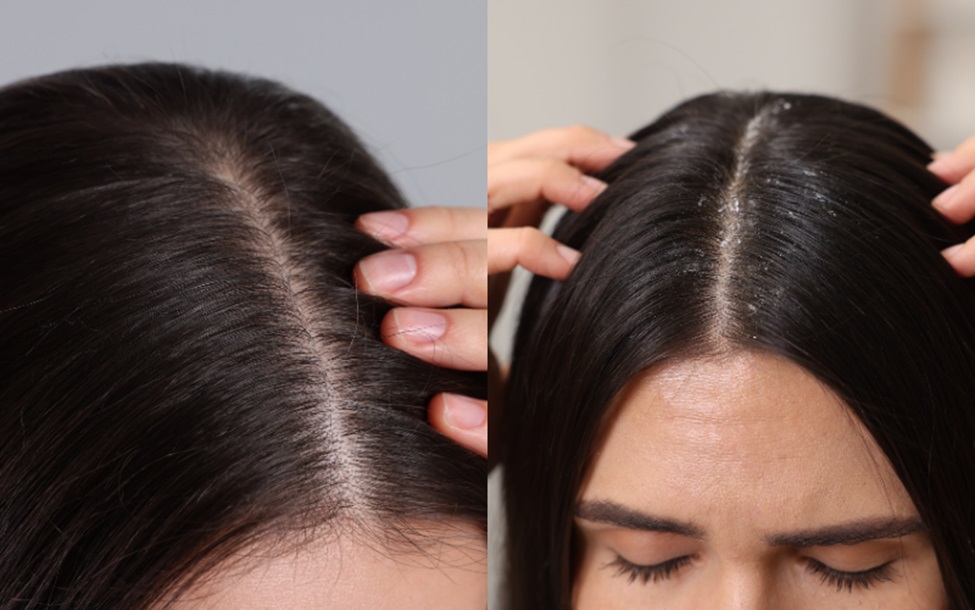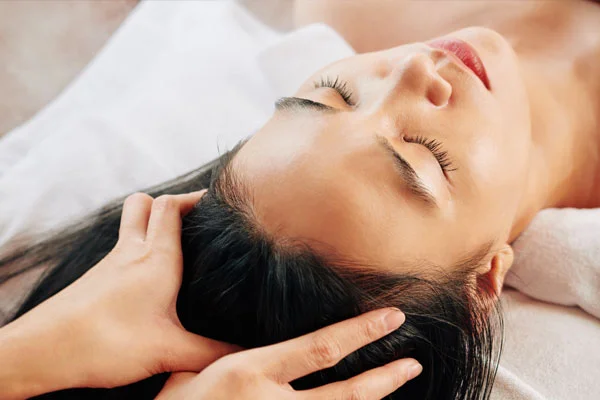
When it comes to maintaining a healthy scalp and addressing various scalp issues, individuals often face the choice between herbal scalp treatments and chemical alternatives. Each approach offers distinct advantages and potential drawbacks. Here is a thorough comparison of these two approaches to assist you in making the best choice for your needs regarding scalp care.
1. Natural Ingredients vs. Synthetic Compounds
Herbal scalp treatments use natural ingredients derived from plants, herbs, and essential oils. These treatments are designed to be gentle on the scalp, often incorporating components like tea tree oil, aloe vera, and chamomile. Herbal treatment advantages focus on natural, non-toxic ingredients, which can be less irritating for those with sensitive skin.
In contrast, chemical alternatives rely on synthetic compounds to address scalp issues. These treatments may include active ingredients such as salicylic acid, ketoconazole, or corticosteroids. While chemical treatments can offer powerful results and targeted solutions, they may also pose a higher risk of irritation or side effects for some individuals.
2. Effectiveness and Results
The effectiveness of herbal scalp treatments often hinges on the specific herbs used and their concentration. Many people find that these treatments provide gradual but significant, improvements in scalp health. Herbal treatments can be particularly beneficial for mild issues such as dryness or mild dandruff.
Chemical alternatives are typically formulated to deliver quicker, more pronounced results. They are often used to treat more severe conditions, such as persistent dandruff, psoriasis, or fungal infections. Chemical treatments tend to work faster due to their potent ingredients, making them a preferred choice for individuals seeking immediate relief.
3. Potential for Side Effects
Herbal scalp treatments are generally associated with a lower risk of side effects. Since they use natural ingredients, there is often less concern about adverse reactions. However, individuals with allergies to specific herbs or essential oils should exercise caution and conduct a patch test before full application.
On the other hand, chemical scalp treatments can sometimes cause side effects, such as dryness, irritation, or allergic reactions. The stronger nature of these treatments can lead to more pronounced skin sensitivity, which may require careful monitoring and adjustment of treatment frequency.
4. Long-Term vs. Short-Term Solutions
Herbal scalp treatments are often praised for their long-term benefits. The natural ingredients work to improve scalp health gradually, which can lead to sustained improvement over time. Many users appreciate that these treatments contribute to overall scalp wellness rather than merely addressing symptoms.
Chemical alternatives may provide more immediate relief, but they sometimes focus on short-term solutions. While effective for quick results, these treatments might not address the underlying causes of scalp issues, potentially necessitating ongoing use to maintain results.

5. Cost and Accessibility
Herbal scalp treatments can vary widely in cost, depending on the rarity of the herbs and the formulation process. In general, they can be more affordable, particularly if DIY remedies are used. Additionally, many herbal products are readily available at health stores and online.
Chemical scalp treatments are often more expensive, especially if prescribed by a dermatologist. The cost of branded or specialised treatments can add up over time. However, their targeted effectiveness might justify the higher price for those needing specific solutions.
6. Environmental and Ethical Considerations
Herbal scalp treatments typically align with environmentally friendly and ethical practices. Natural ingredients are often sustainably sourced, and many herbal products are free from harsh chemicals that can impact the environment. Additionally, these treatments are less likely to be tested on animals.
Chemical alternatives may involve more intensive manufacturing processes and can sometimes include ingredients that are harmful to the environment. Some people are concerned about the environmental impact of synthetic chemicals and prefer the eco-friendly aspect of herbal treatments.
7. Personal Preferences and Lifestyle
Choosing between herbal and chemical scalp treatments often comes down to personal preference and lifestyle. Those who prefer natural and holistic approaches may gravitate towards herbal solutions, valuing their gentle and nurturing qualities. Meanwhile, individuals seeking rapid results or dealing with severe scalp conditions might find chemical treatments more suitable for their needs.
8. Professional Guidance
For optimal results, it’s advisable to consult a professional before starting any scalp treatment. Dermatologists or trichologists can provide tailored recommendations based on your specific scalp condition, hair type, and personal preferences. They can help you determine whether a herbal or chemical treatment will be more effective for your situation.
In summary, both herbal scalp treatments and chemical alternatives have their merits and drawbacks. Herbal treatments offer a natural, gentle approach with fewer side effects, while chemical treatments deliver rapid and targeted results for more severe conditions. Understanding these differences can help you make an informed choice based on your individual needs and preferences.
For more information, contact Azel& Jane today.

